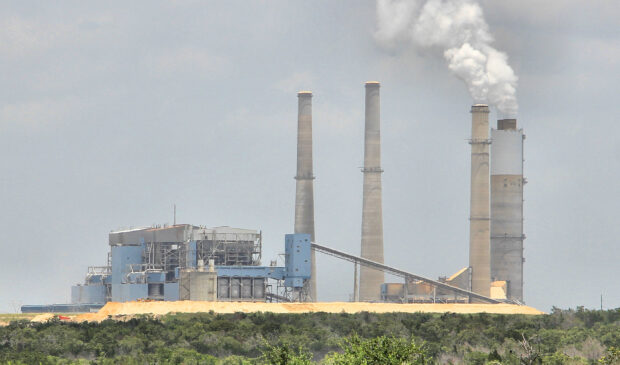Austin Energy fine-tuning plans for reliable, carbon-free power by 2035
Wednesday, January 17, 2024 by
Chad Swiatecki Austin Energy leaders have prioritized reliability of the utility’s power generation at all times as one of the most important components of its next resource generation plan, which is expected to come before City Council for approval in March.
During the December meeting of Council’s AE Utility Oversight Committee, members heard details of the many goals and scenarios involved in planning for providing power in a fast-growing city experiencing more extreme weather events. The presentation delivered by AE chief operating officer Lisa Martin first listed challenges such as retiring the coal-powered Fayette Power Project, dealing with extreme weather events, managing changes in the regulatory market for energy, handling volatile market and congestion costs, and meeting the growing local demand for power.
Amid those, AE plans to continue work on making the city carbon-free by 2035. Other goals include exiting the Fayette project, upgrading transmission lines to reduce transmission costs, addressing the demand for local power by enacting more efficient equipment on the customer side and adding some natural gas capacity as a temporary bridge to meet near-term growth in generation demand.
The utility has studied a mix of six technologies – local solar, distributed storage, carbon-free generation, long-duration storage, local long-duration storage and demand-side management – to judge how they could perform in a variety of likely scenarios.
The 11 examined scenarios all stated goals, with an addition of a green hydrogen plant at a cost of $838 million appearing to meet all criteria. The total cost of the 11 scenarios ranged from $838 million to more than $1.8 billion.
AE leaders will meet with the Electric Utility Commission in February to seek approval of the new generation plan. They are also expected to meet this month with some members to analyze other possible solutions for the city’s power needs in the coming years.
“To meet all of our objectives moving forward, our portfolio must include local dispatchable generation with a bridge to carbon free,” Martin said. “This will mitigate the reliability and affordability risks that we’re experiencing, and it enables additional renewables to meet resource plan goals, essentially solve the physics problem, and then we can add more renewables.”
Council Member Alison Alter said she wants to see more information in upcoming presentations about the pace of becoming carbon-free by 2035.
“The sooner we have the carbon-free, the better it is for our air quality here in Austin, especially if we’re doing the local,” she said. “It sounds like there may be quite a bit of variation on that guide path, depending on the choices that are made. … I would like to understand what that carbon-free trajectory looks like that gets us there by 2035.”
Council Member Ryan Alter questioned several of the utility’s assumptions, including the need to add some carbon-based generation as a temporary move to meet growing demand. He also asked for more clarity on some of the differences in fixed operation costs for local power generation under the different scenarios.
In response to questions about AE’s ability to continue operating during extreme weather events, operations and planning vice president Michael Enger said the utility has agreements that reserve the transmission of natural gas at all times to reduce the risk of getting crowded out during times of unusual demand spikes.
“We also source our natural gas from many different parts of the state, not just up in the Panhandle where you saw a lot of the freeze-offs occur,” he said. “We also have access to natural gas down in the south as well as out in East Texas as well, which helps mitigate the risk of that, and we do have a bit of oversized transportation contracts as well.”
Photo by Larry D. Moore, CC BY 4.0, Link This story has been changed since publication to correct an erroneous claim that the Fayette Power Plant is financially troubled.
You're a community leader
And we’re honored you look to us for serious, in-depth news. You know a strong community needs local and dedicated watchdog reporting. We’re here for you and that won’t change. Now will you take the powerful next step and support our nonprofit news organization?








